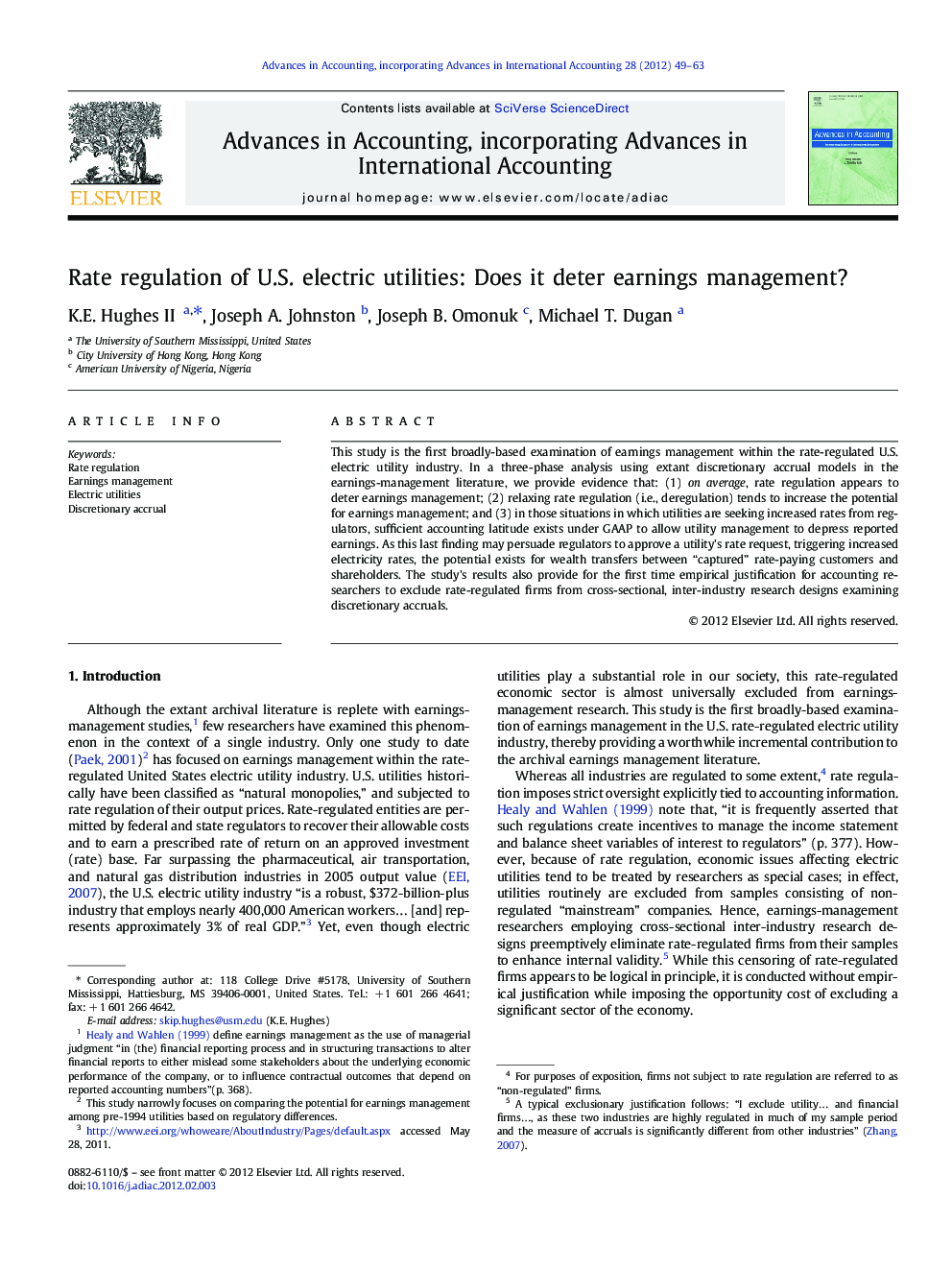| Article ID | Journal | Published Year | Pages | File Type |
|---|---|---|---|---|
| 7340712 | Advances in Accounting | 2012 | 15 Pages |
Abstract
This study is the first broadly-based examination of earnings management within the rate-regulated U.S. electric utility industry. In a three-phase analysis using extant discretionary accrual models in the earnings-management literature, we provide evidence that: (1) on average, rate regulation appears to deter earnings management; (2) relaxing rate regulation (i.e., deregulation) tends to increase the potential for earnings management; and (3) in those situations in which utilities are seeking increased rates from regulators, sufficient accounting latitude exists under GAAP to allow utility management to depress reported earnings. As this last finding may persuade regulators to approve a utility's rate request, triggering increased electricity rates, the potential exists for wealth transfers between “captured” rate-paying customers and shareholders. The study's results also provide for the first time empirical justification for accounting researchers to exclude rate-regulated firms from cross-sectional, inter-industry research designs examining discretionary accruals.
Related Topics
Social Sciences and Humanities
Business, Management and Accounting
Accounting
Authors
K.E. II, Joseph A. Johnston, Joseph B. Omonuk, Michael T. Dugan,
